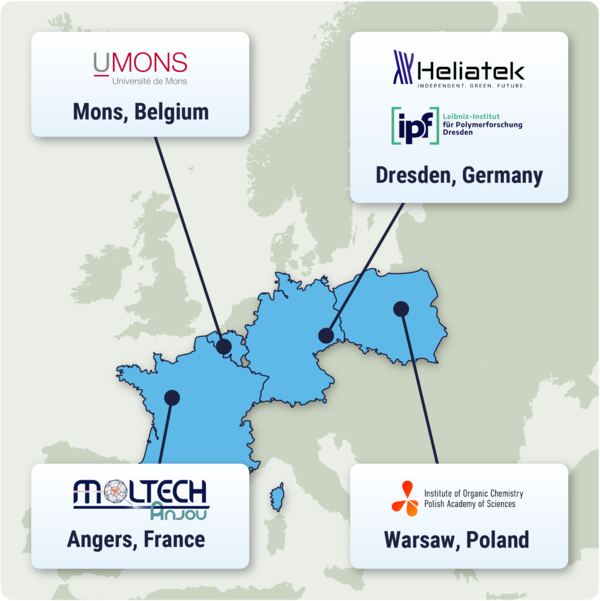Leibniz-Institute of Polymer Research Dresden
New challenges in the sectors of energy, mobility, health, sustainability, and communication require new technologies and materials. Polymers but also small organic molecules offer unique opportunities to design materials and to enable innovative technologies.
At the IPF, researchers of different disciplines work closely together to exploit this fascinating potential. As a member of the Leibniz Association, the institute is doing application-oriented basic research.The IPF is involved in the DRESDEN-concept network and in numerous national and international co-operations.
In the STEEP UP project, the IPF uses its numerous advanced methods for structure analysis of thin films for organic photovoltaics and aims to make an important contribution to the formulation of structure-property relationships for novel materials.








